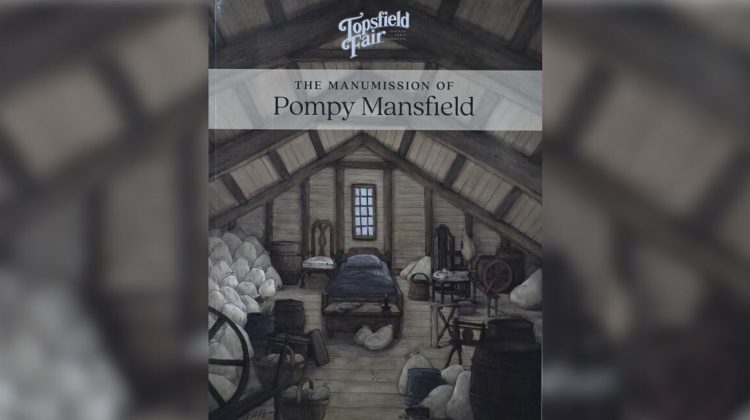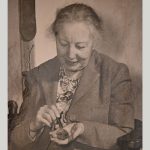SAUGUS — Saugus Ironworks ranger Curtis White has spent his time studying the history and life of “King Pompy,” also spelled Pompey, Mansfield, an enslaved man who lived in the part of Lynn that is now Saugus. Although not much is known about Pompy, White has managed to write a book about the man, titled “The Manumission of Pompy Mansfield,” sponsored by Essex Heritage.
“The Topsfield or Essex County Agricultural Society was the original instigator of this (and) was willing to take some of the knowledge that I had acquired at the Ironworks and helped me put it into book form,” he said.
White was introduced to Pompy while reviewing the historic structures report at the Ironworks.
“It brings up all the different buildings that were on the Ironworks site, and that I think was one of the first places where I began to get introduced to Pompy, even though I didn’t know it,” White said.
While digging into research about Pompy, White found that most of the information came from the history of Alonzo Lewis, a prominent figure in Lynn, and was then taken into different directions through history.
White didn’t have a definitive answer for why Pompy was called a king. Some believed it stemmed from his origins before being enslaved, and others believed that he was one of the Black kings elected in New England between 1750 and 1850.
White is hoping to learn more from others and grow the story of Pompy and who he is.
Pompy’s history is linked to Lewis, who was a strong proponent against slavery and wrote a number of songs and poems for the freedom of slaves.
Lewis believed that Pompy was freed around 1750, according to his historic accounts. Lewis also had drawn a map that supposedly pinpointed the location where Pompy lived, labeled “Black King Pompey.”
During his research, White found records about Pompy that stated he married a woman named Phoebe, however the name is also seen as Phyllis.
“At that time, he was a servant to Daniel Mansfield in Lynn, and that marriage took place on Dec. 5, 1745, but I have no idea what happened. There’s no other record I could find of who Phyllis or Phoebe was, or if they had any kids,” he said.
Daniel Mansfield’s will from 1753 noted that his property was to go to his daughters but that Pompy was to be freed upon his death.
“He doesn’t commit Pompy (to) another member of the family,” White emphasized.
There are multiple documents that White found which refer to Pompy, but his life isn’t well-documented through time.
White hopes that others will come forward with information about Pompy’s life so more of it can be pieced together.




